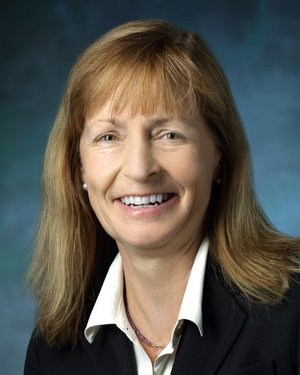Research Summary
Tube formation is a ubiquitous process required to sustain life in all multicellular organisms. Tubular organs include the lungs, vasculature, digestive and excretory systems, as well as secretory organs such as the pancreas, salivary, prostrate, and mammary glands. The Andrew lab studies the Drosophila trachea and salivary gland as model systems for tube formation to learn how organ size, shape and function is normally controlled. Over the past several years, the lab has identified many genes expressed in the trachea and salivary gland and are characterizing the subset required for early tube morphogenesis.
Two of the genes encode transcription factors required for internalization of either the trachea or salivary gland, trachealess and fork head. Three genes encode transcription factors controlling tube elongation, ribbon, huckebein and hairy. Finally, several genes encode components of signaling pathways required for organ positioning. Current efforts in the lab are directed toward identifying and characterizing the roles of the downstream effector molecules regulated by these transcription factors and signaling pathways. They also study the mechanisms whereby the salivary gland becomes specialized for secretion and have learned that secretory capacity in this and other secretory organs is largely controlled by a single transcription factor, CrebA.
Selected Publications
Fox RM, Vaishnavi A, Maruyama R, and Andrew DJ (2013) “Organ-specific gene expression: the bHLH protein Sage provides tissue-specificity to Drosophila FoxA.” Development. 140: 2160-71. PMID: 23578928
Ismat A, Cheshire A, Andrew DJ (2013) “The secreted AdamTS-A metalloprotease is required for collective cell migration.” Development 140: 1981-1993. PMID: 23578928
Barbosa S, Fasanella G, Carreira S, Llarena M, Fox R, Barreca C, Andrew D, and O'Hare P. (2013) “An orchestrated program regulating secretory pathway genes and cargos by the transmembrane transcripton factor CREB-H.” Traffic. 14: 382-398
Chung S-Y, Chavez C, Andrew DJ. (2011) “Trachealess (Trh) regulates all tracheal genes during Drosophila embryogenesis.” Developmental Biology 360: 160-172. PMID: 21963537
Fox RM, Hanlon CD, Andrew DJ. (2010) “The CrebA/Creb3-like transcription factors are major and direct regulators of secretory capacity.” Journal of Cell Biology 191: 479-492. PMID: 21041443
Kerman BE, Andrew DJ. (2010) “Staying alive: Dalmatian-mediated epigenetic blocking of apoptosis is essential for tissue maintenance.” Developmental Dynamics 239:1609-21. PMID: 20503358
Andrew DJ, Ewald AJ. (2010) “Morphogenesis of epithelial tubes: Insights into tube formation, elongation, and elaboration.” Developmental Biology 341: 34-55. PMID: 19778532
Chung S-Y, Vining MS,, Bradley PL, Chan C-C, Wharton, KA, and Andrew DJ. (2009) “Serrano (Sano) functions with the planar cell polarity genes to control tracheal tube length.” PLoS Genetics 5(11): e1000746. PMID: 19956736
Abrams EW, Mihoulides WK, and Andrew DJ. (2006) “Fork head and Sage maintain a uniform and patent salivary gland lumen through regulation of two downstream target genes, PH4áSG1 and PH4áSG2.” Development 133: 3517-3527. PMID: 16914497
Myat MM, Andrew DJ. (2002) “Epithelial tube morphology is determined by the polarized growth and delivery of apical membrane.” Cell 111:879-891. PMID: 12526813


Patient Ratings & Comments
The Patient Rating score is an average of all responses to physician related questions on the national CG-CAHPS Medical Practice patient experience survey through Press Ganey. Responses are measured on a scale of 1 to 5, with 5 being the best score. Comments are also gathered from our CG-CAHPS Medical Practice Survey through Press Ganey and displayed in their entirety. Patients are de-identified for confidentiality and patient privacy.